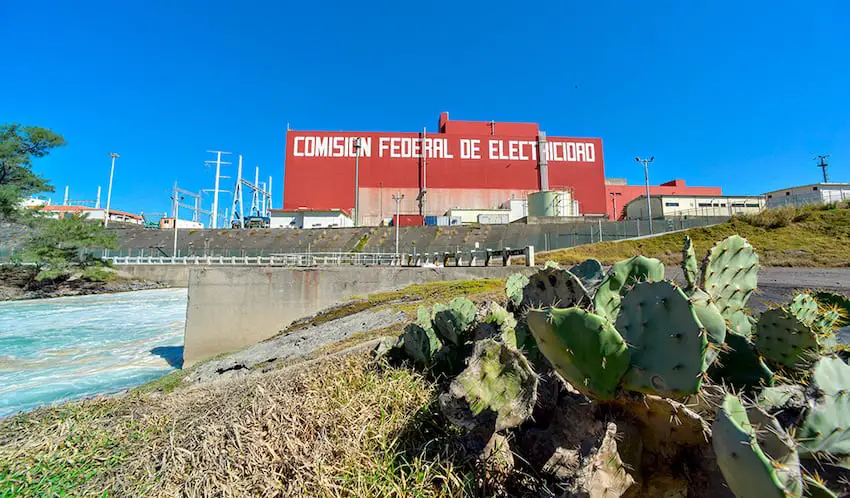The wisdom of the federal government’s decision to buy 13 power plants from the Spanish company Iberdrola for approximately US $6 billion has been questioned by two energy experts who spoke with the Reforma newspaper.
The government announced Tuesday that it had reached an agreement with Iberdrola to purchase 12 combined-cycle plants and one wind farm. President López Obrador hailed the deal as a “new nationalization” of the Mexican electricity industry.

Carlos Flores, head of new markets at solar energy company Lightsource BP, and Rosanety Barrios, independent energy analyst and former federal official, agreed that the price for the 13 plants is high, given that about two-thirds of them have been operating for between 10 and 25 years. Therefore, the plants have a limited useful life ahead of them – an average of 18 years, according to the Finance Ministry.
“From an economic perspective, the transaction doesn’t make much sense for the government,” Flores said.
In the interview, Flores asserted that the government was paying too much because building the same number of new plants “would cost around US $8 billion.”
Barrios described the purchase as an “indulgence” given that the majority of the electricity the plants generate is already sold at a cheap price to the state-owned Federal Electricity Commission (CFE).

Most of the plants the government is buying are deemed “independent energy producers” or PIEs, but contracts obligate them to sell their energy to the CFE. “The truth is, these plants already belonged to the CFE,” Barrios said.
The analyst said it “would be better” for the government to buy or build new plants rather than ones that have already been in use for years.
President López Obrador said that the purchase, which the government intends to complete via a private asset manager called Mexico Infrastructure Partners, will increase the CFE’s share of the electricity generation market from just under 40% to 55.5%.
However, a Mexico City-based think tank challenged that claim, as well as the president’s “nationalization” statement.

The Mexican Institute for Competitiveness (IMCO) noted that the majority of the funds for the purchase will come from the government’s National Infrastructure Fund and other public institutions, but asserted that because the sale is to a “private trust,” the legal ownership of the plants “will remain private.”
“… Legally, the ownership of the plants and the management of the trust will be private, unconnected to the federal government and the Federal Electricity Commission. In other words, the CFE is not increasing its participation in the electricity generation market,” IMCO said.
Like Barrios, the think tank pointed out that the majority of the electricity generation capacity that Iberdrola is selling is “already under the control of the CFE, given that the PIEs already form part of the company’s generation matrix.”
“… This sale doesn’t represent a nationalization of the industry nor does it change the operation of the wholesale electricity market. It only changes the ownership of a basket of plants between private entities,” IMCO said.
The think tank also questioned why the government was using public resources to buy power plants that are mostly dependent on fossil fuels “at the expense of investments that accelerate the energy transition in the country.”
With reports from Reforma
